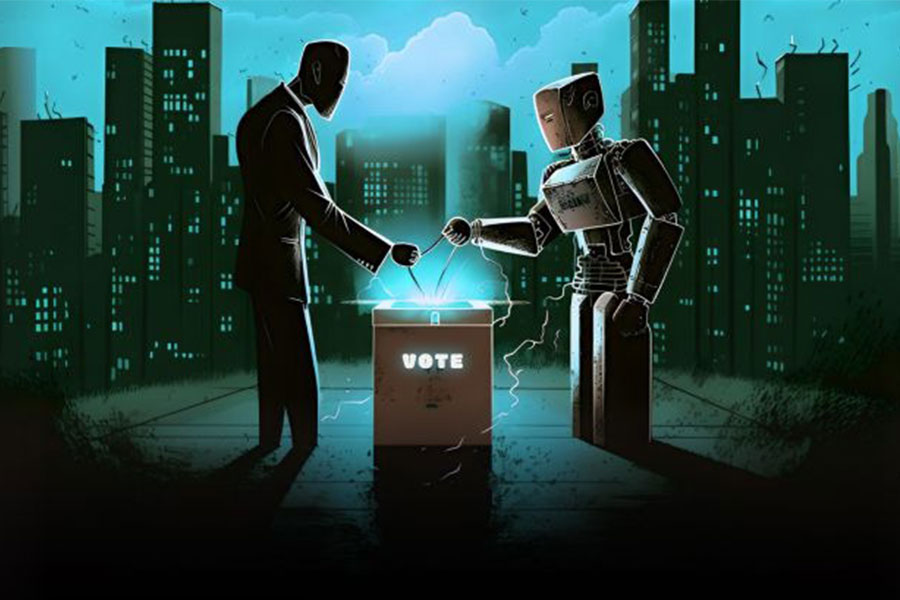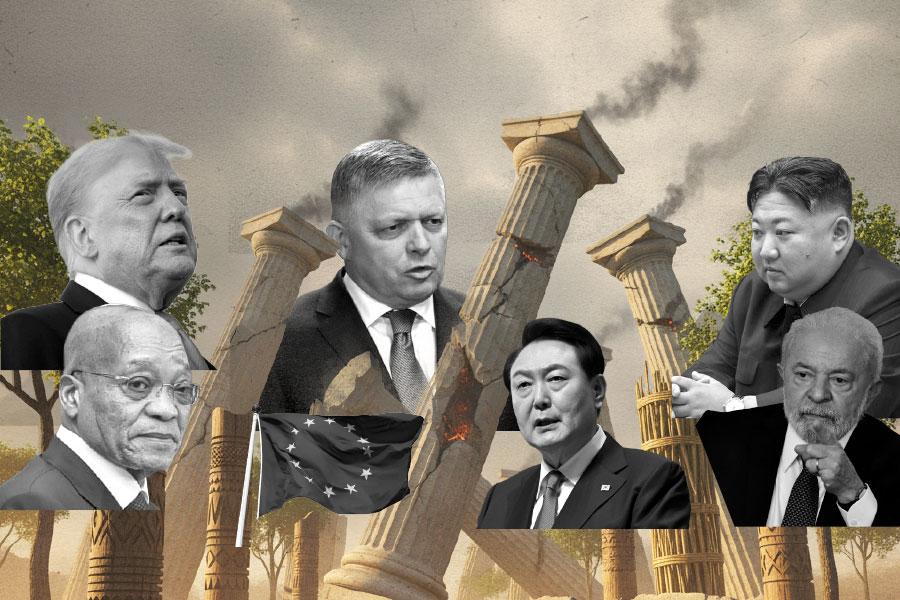
Viewpoints | Feb 09,2019
Jan 18 , 2019
By Belay Abera
Information has always been important, and the lack of it can be a great cost to money, property and human lives.
Perhaps the most tragic example of this took place during a battle in the American city of New Orleans, during the War of 1812 between Britain and the United States. The war had dragged on towards 1815, with this particular one taking place on January 8.
After the end of the battle though, the Americans and the British learned there had been no need to fight. A peace treaty between the two countries had been signed just two weeks earlier. Unfortunately, no news of this reached either of the warring sides during the battle, leading to the death of thousands, only because of a lack of better communication systems.
Today we have the radio, television, newspapers and the internet, providing us with major sources of information for every hourly - and even under that - development of events around the world. This is no different for Ethiopia, where most people use the internet as a major source of information as well as Tv and the radio.
Despite all the advantages new communication technology offers though, false information poses a major threat to society and democracy today. Fake news and its influences dominate headlines as fabricated news reports go viral and create shock and disbelief. Its ability to manipulate human behaviour is unparalleled in history - an instrument that would have made the dictators of old envious and the autocrats of today content.
The impact of fake news on the exchange of information is particularly worrying. Uncertainty about the veracity of a piece of information that is received affects public trust of responsible media outlets as well. This is even more true for videos and photos which as technology advances are becoming harder to tell are real or fake.
The fact that fake news can generate better traffic and engagement is the most worrying factor. People have the general tendency to remember and share information and news that is sensational. Stories are most likely to generate attention when they can achieve the "wow" factor, and information based on this is most likely not to be true or is a crude and misleading representation of facts.
The statistics concur with the assessment, including stories about the 2016 American general election where the fake stories that went viral more than stories from recognised news sites.
The problem is exacerbated by the fact that the saying that "all publicity is good publicity" still holds true. From corporations to politicians, the power of the internet in disseminating propaganda in ways the totalitarian governments of lore only dreamed of has been well understood.
What has come to matter most is that one can hold attention, for which there is no better means than being sensational. This entails at least a partisan treatment of subject matters if not a downright employment of fake content.
The destructiveness of the use of fake news gets worse the more democratically young nations are. An uninformed citizenry, weak democratic institutions and a poor culture of conflict management leave a nation bare to the machinations of individuals unafraid to use destructive means to gain power.
While there is a robust agreement that fake news needs to be addressed rather than allow it to run rampant, there is the issue of how this can be done.
Even defining fake news and characterising a story as such falls under dispute. The sheer volume of such content makes it impossible to manually filter out fake news, or put a stamp on it, in a short period. Algorithms that can do this are as well hard to write given that fake news can easily be confused for satire, opinions or just a piece of contradicting information.
Fake news cannot be combated effectively by governments or corporations alone, not without restricting the freedom of speech. Indeed, both can help cushion the impact. Corporations can use various tools and human resources to ensure that they do not advertise on fake news sites. And the government can be transparent and communicative and supportive of recognised media outlets for citizens not to turn to sites that bare no responsibility or accountability to anyone.
But the ultimate defence is a citizenry that is better informed. Defeating fake news calls for a tall order, the individual assumption of responsibility for the content we share, like and the comments we make. Together with strong democratic institutions, this tumor of democracy can become no longer malignant but a benign annoyance.
PUBLISHED ON
Jan 18,2019 [ VOL
19 , NO
977]


Viewpoints | Feb 09,2019

View From Arada | Aug 16,2025

Sunday with Eden | Aug 18,2024

My Opinion | Dec 26,2020

View From Arada | Sep 13,2025

My Opinion | Nov 07,2020

Radar | Mar 30,2019

My Opinion | Oct 05,2019

Viewpoints | Jan 18,2020

My Opinion | Jun 27,2020

Photo Gallery | 177206 Views | May 06,2019

Photo Gallery | 167414 Views | Apr 26,2019

Photo Gallery | 158040 Views | Oct 06,2021

My Opinion | 136968 Views | Aug 14,2021
Commentaries | Oct 25,2025

Dec 22 , 2024 . By TIZITA SHEWAFERAW
Charged with transforming colossal state-owned enterprises into modern and competitiv...

Aug 18 , 2024 . By AKSAH ITALO
Although predictable Yonas Zerihun's job in the ride-hailing service is not immune to...

Jul 28 , 2024 . By TIZITA SHEWAFERAW
Unhabitual, perhaps too many, Samuel Gebreyohannes, 38, used to occasionally enjoy a couple of beers at breakfast. However, he recently swit...

Jul 13 , 2024 . By AKSAH ITALO
Investors who rely on tractors, trucks, and field vehicles for commuting, transporting commodities, and f...

Oct 25 , 2025
The regulatory machinery is on overdrive. In only two years, no fewer than 35 new pro...

Oct 18 , 2025
The political establishment, notably the ruling party and its top brass, has become p...

Oct 11 , 2025
Ladislas Farago, a roving Associated Press (AP) correspondent, arrived in Ethiopia in...

Oct 4 , 2025
Eyob Tekalegn (PhD) had been in the Governor's chair for only weeks when, on Septembe...

Oct 25 , 2025 . By YITBAREK GETACHEW
Officials of the Addis Abeba's Education Bureau have embarked on an ambitious experim...

Oct 26 , 2025 . By YITBAREK GETACHEW
The federal government is making a landmark shift in its investment incentive regime...

Oct 26 , 2025 . By NAHOM AYELE
The National Bank of Ethiopia (NBE) is preparing to issue a directive that will funda...

Oct 26 , 2025 . By SURAFEL MULUGETA
A community of booksellers shadowing the Ethiopian National Theatre has been jolted b...